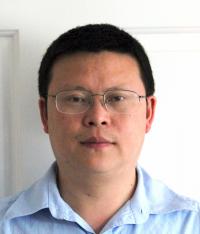Zhijun
Duan
Ph.D.

education and training
- Ph.D., Shanghai Institute of Biochemistry, Chinese Academy of Sciences, China
- Postdoctoral Fellow in Medical Genetics, UW
affiliations
Institute for Stem Cell & Regenerative Medicine, UW
publications
research interests
Dr. Zhijun Duan's research activities focus on deciphering the structure-function relationship of the genome to understand the molecular mechanisms underlying human development and tumorigenesis. The genomic DNA in human cells are nonrandomly organized into nested hierarchy in the three-dimensional (3D) space of the nucleus and this spatial organization critically impacts human health and disease, including cancer. Defects in the 3D genome organization have been observed in a wide spectrum of human diseases. Over the past years, Dr. Duan's lab has developed a series of cutting-edge genomic tools for delineating the 3D genome organization globally or locally.
In addition to developing innovative technologies, one major focus in the lab is to use these tools to investigate how the 3D genome organization goes wrong in blood disorders. For example, myelodysplastic syndromes (MDS) are a group of clonal disorders of hematopoietic stem and progenitor cells, characterized by dysplastic hematopoiesis, cytopenia and increased risk of progression to acute myeloid leukemia (AML). It remains unclear how the nuclear dysplasia that defines these disorders relates to MDS pathogenesis. Dr. Duan is using population-based and single-cell assays to identify abnormal features of the 3D genome and cis-regulatory landscapes in MDS blood cells, with the goal to provide new pathophysiological insights that has the potential to pave the way for developing better MDS diagnostics and therapeutics.



